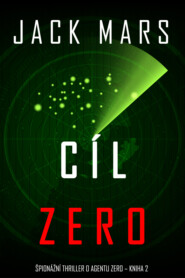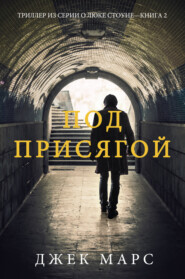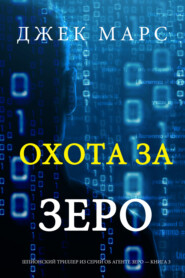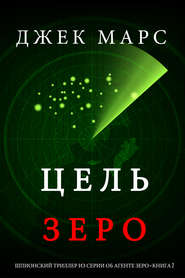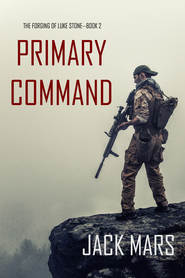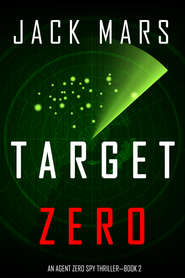По всем вопросам обращайтесь на: info@litportal.ru
(©) 2003-2024.
✖
President Elect
Настройки чтения
Размер шрифта
Высота строк
Поля
4:15 p.m. Eastern Standard Time
Mount Carmel Cemetery
Reston, Virginia
A single red rose, just cut, lay on the brown grass. Luke stared at the name and the epitaph carved into the gleaming black marble.
REBECCA ST. JOHN
To Live, to Laugh, to Love
The bleak overcast day was already fading and night was coming on. He felt a shiver go through him. He was overtired from the long trip back east. He was also clean-shaven, with short hair – no longer protected from the chill by his shaggy mane. He looked away from the stone and stared out at the cemetery, row upon row of gravestones covering rolling hillsides in a quiet part of suburban DC.
He gazed up at the gunmetal sky. When they married, Becca had taken his last name. Apparently, she had chosen to go to her grave under her maiden name. That burned him, all the way deep inside. Their rupture had been complete. He almost shook his fist at the sky, at Becca, wherever she might be now.
Did he hate her? No. But she made him very, very angry. She had blamed him for everything that went wrong in their marriage, right up to and including her own death from cancer.
On the cemetery road, just down the hill and about a hundred yards away, a sleek black limousine pulled up in front of Luke’s nondescript rental sedan. As he watched, a chauffeur in black jacket and cap opened the back door of the limo.
Two figures emerged. One was young and male, growing tall like his father. The boy wore jeans, sneakers, a dress shirt, and a windbreaker jacket. The other figure was old and female, stooped a bit, wearing a long heavy wool coat against the damp autumn air. Luke didn’t have to guess who they were – he already knew.
Luke had cheated. Of course he had. Fifteen minutes ago, he had been tailing that same limousine. When he guessed where it was going, he decided to beat it here. The two people working their way slowly up the footpath now, arm in arm, were Audrey, Becca’s seventy-two-year-old mother, and Gunner, Luke and Becca’s thirteen-year-old son.
Luke looked away for a moment as they approached, scanning the horizon as though something interested him out there. When he turned back again, they were nearly here. He watched them come. Audrey moved slowly, carefully studying her own feet as they touched the ground – she seemed older than her years. Gunner stepped awkwardly along with her, supporting her. The slow pace seemed like it would make him lose his balance – he was like a young colt trapped in a stall, all frustrated energy, desperate to unleash his own speed and power.
Gunner stared quizzically at Luke, but only for a few seconds. It had been nearly two years since last they’d met – an immense amount of time at the boy’s age – and for a brief moment, it was clear he didn’t know who Luke was. His face darkened when he realized he was staring at his own father. Then he looked at the ground.
Audrey knew who Luke was right away.
“Can we help you?” she said before they even reached the grave marker.
“You can’t,” Luke said. Audrey and her husband, Lance, had never accepted him as their son-in-law. They had been a toxic influence on his marriage since well before he and Becca exchanged their vows. Luke had nothing to say to Audrey.
“What are you doing here, Dad?” Gunner said. His voice was deeper now. His throat had the cleft of an Adam’s apple – that hadn’t been there before.
“I was called here by the President. But I wanted to see you first.”
“Your President lost,” Audrey said. “She’s holed up inside the White House like a lunatic, refusing to admit defeat. I always knew there was something suspect about her. Now it’s on full display for the world to see. Was she hoping to become Emperor?”
Luke looked at Audrey, taking his time, soaking her in. She had deep-set eyes with irises so dark, they seemed almost black. She had a sharp nose, like a beak. Her shoulders were hunched, and her hands were impossibly frail. She reminded him of a bird – a crow, or maybe a vulture. A carrion eater, in any case.
“She lost,” Audrey said again. “She needs to get over it and prepare to hand over power to the winner.”
“Gunner?” Luke said, ignoring Audrey now. “Can we talk?”
“I told Rebecca in no uncertain terms not to marry you. I told her it would end in disaster. But I never could have imagined that it would come to this.”
“Gunner?” Luke repeated, but now the boy was looking away. Luke saw a tear slide down Gunner’s face. The kid swallowed hard.
“I just want to apologize.”
The words came out wrong. An apology? That wouldn’t nearly cut it. Luke knew that. It was going to take a lot more than an apology to set this situation right again, if that was even possible. He wanted to tell Gunner that. He wanted to tell him he would do anything, everything, if only he would let him back into his life.
He had made a terrible mistake. He would spend the rest of his life on this. He would fix it.
Gunner looked at him, openly crying now. The tears streamed down his face. “I don’t want to talk to you.” He shook his head. “I don’t want to see you. I just want to forget about you, don’t you understand?”
Luke nodded. “Okay. Okay, I can respect that. But know that I love you and I’m always open to hearing from you. Do you still have my number? You can call me if you change your mind.”
“I don’t have your number,” Gunner said. “And I won’t change my mind.”
Luke nodded again. “In that case, I’ll leave you alone.”
Audrey’s voice followed Luke down the path. “That sounds like a good idea,” she said. “Leave the boy alone.” Then she laughed, a mad cackle that would have sounded almost like a coughing fit if Luke didn’t know better.
“Leave us alone with our dead.”
Luke made it to his car, put it in gear, and was almost to the cemetery gates before he started crying himself.
CHAPTERR FIVE
4:57 p.m. Eastern Standard Time
Bubba’s Lounge
Chester, Pennsylvania
No one remembered who Bubba was.
The small tavern had sat there on a street corner in the southeast end of Chester, near the river, since sometime after World War II. Ten different people had owned it at one time or another, and it had always been called Bubba’s, as far as anyone knew. But no one knew why.
“I guess she’s going to throw in the towel,” one man at the bar said.
“About time,” said another.
Marc Reeves was working the stick today. Marc was an old-timer, sixty-seven years of age. He had poured beer at this bar, off and on, for the past twenty-five years, outlasting three owners in the process. He had watched the whole town go down the tubes right from this bar. In a city where damn near everything was boarded up or about to be, Bubba’s was a success story. Even so, nobody kept it for long.
The place broke even – that was the problem. It didn’t lose money, it didn’t make money. You were better off working there, or drinking there, than owning it. At least you got something for your trouble.
There was a big old box color TV set mounted on an iron rod behind the bar. This time of the afternoon, the place had four or five daytime drinkers lined up along the rail, wasting their Social Security checks and whatever was left of their livers. Usually the television was set to whatever game happened to be on. Today was different, though. Today the President was holding her first press conference since she lost the election.
Marc had been skeptical of her when she first came into office, especially considering the circumstances, but she had grown on him. He thought she had done a pretty good job, all in all. She, and the country, had weathered a lot of storms. So he had done something yesterday that he rarely did – he had voted for her. He hadn’t stepped inside a polling place in twelve years before that.
Not everyone agreed with his decision.
“I like the new guy,” a fat man along the rail said. Everybody called him Skipper. He’d probably never been on a boat in his life. “What has Susan Hopkins ever done for Chester, Pennsylvania? That’s what I want to know. Anyway, it’s about time somebody put a stop to all these Chinamen flooding the country.”
“And bring back our jobs while you’re at it,” a man named Steve-O said. Steve-O was so thin he was like one of those man-like pipe cleaner sculptures. He came in here and drank beer and bourbon every single day. Marc had never seen Steve-O eat even a bite of food. He seemed to survive on alcohol alone.
Mount Carmel Cemetery
Reston, Virginia
A single red rose, just cut, lay on the brown grass. Luke stared at the name and the epitaph carved into the gleaming black marble.
REBECCA ST. JOHN
To Live, to Laugh, to Love
The bleak overcast day was already fading and night was coming on. He felt a shiver go through him. He was overtired from the long trip back east. He was also clean-shaven, with short hair – no longer protected from the chill by his shaggy mane. He looked away from the stone and stared out at the cemetery, row upon row of gravestones covering rolling hillsides in a quiet part of suburban DC.
He gazed up at the gunmetal sky. When they married, Becca had taken his last name. Apparently, she had chosen to go to her grave under her maiden name. That burned him, all the way deep inside. Their rupture had been complete. He almost shook his fist at the sky, at Becca, wherever she might be now.
Did he hate her? No. But she made him very, very angry. She had blamed him for everything that went wrong in their marriage, right up to and including her own death from cancer.
On the cemetery road, just down the hill and about a hundred yards away, a sleek black limousine pulled up in front of Luke’s nondescript rental sedan. As he watched, a chauffeur in black jacket and cap opened the back door of the limo.
Two figures emerged. One was young and male, growing tall like his father. The boy wore jeans, sneakers, a dress shirt, and a windbreaker jacket. The other figure was old and female, stooped a bit, wearing a long heavy wool coat against the damp autumn air. Luke didn’t have to guess who they were – he already knew.
Luke had cheated. Of course he had. Fifteen minutes ago, he had been tailing that same limousine. When he guessed where it was going, he decided to beat it here. The two people working their way slowly up the footpath now, arm in arm, were Audrey, Becca’s seventy-two-year-old mother, and Gunner, Luke and Becca’s thirteen-year-old son.
Luke looked away for a moment as they approached, scanning the horizon as though something interested him out there. When he turned back again, they were nearly here. He watched them come. Audrey moved slowly, carefully studying her own feet as they touched the ground – she seemed older than her years. Gunner stepped awkwardly along with her, supporting her. The slow pace seemed like it would make him lose his balance – he was like a young colt trapped in a stall, all frustrated energy, desperate to unleash his own speed and power.
Gunner stared quizzically at Luke, but only for a few seconds. It had been nearly two years since last they’d met – an immense amount of time at the boy’s age – and for a brief moment, it was clear he didn’t know who Luke was. His face darkened when he realized he was staring at his own father. Then he looked at the ground.
Audrey knew who Luke was right away.
“Can we help you?” she said before they even reached the grave marker.
“You can’t,” Luke said. Audrey and her husband, Lance, had never accepted him as their son-in-law. They had been a toxic influence on his marriage since well before he and Becca exchanged their vows. Luke had nothing to say to Audrey.
“What are you doing here, Dad?” Gunner said. His voice was deeper now. His throat had the cleft of an Adam’s apple – that hadn’t been there before.
“I was called here by the President. But I wanted to see you first.”
“Your President lost,” Audrey said. “She’s holed up inside the White House like a lunatic, refusing to admit defeat. I always knew there was something suspect about her. Now it’s on full display for the world to see. Was she hoping to become Emperor?”
Luke looked at Audrey, taking his time, soaking her in. She had deep-set eyes with irises so dark, they seemed almost black. She had a sharp nose, like a beak. Her shoulders were hunched, and her hands were impossibly frail. She reminded him of a bird – a crow, or maybe a vulture. A carrion eater, in any case.
“She lost,” Audrey said again. “She needs to get over it and prepare to hand over power to the winner.”
“Gunner?” Luke said, ignoring Audrey now. “Can we talk?”
“I told Rebecca in no uncertain terms not to marry you. I told her it would end in disaster. But I never could have imagined that it would come to this.”
“Gunner?” Luke repeated, but now the boy was looking away. Luke saw a tear slide down Gunner’s face. The kid swallowed hard.
“I just want to apologize.”
The words came out wrong. An apology? That wouldn’t nearly cut it. Luke knew that. It was going to take a lot more than an apology to set this situation right again, if that was even possible. He wanted to tell Gunner that. He wanted to tell him he would do anything, everything, if only he would let him back into his life.
He had made a terrible mistake. He would spend the rest of his life on this. He would fix it.
Gunner looked at him, openly crying now. The tears streamed down his face. “I don’t want to talk to you.” He shook his head. “I don’t want to see you. I just want to forget about you, don’t you understand?”
Luke nodded. “Okay. Okay, I can respect that. But know that I love you and I’m always open to hearing from you. Do you still have my number? You can call me if you change your mind.”
“I don’t have your number,” Gunner said. “And I won’t change my mind.”
Luke nodded again. “In that case, I’ll leave you alone.”
Audrey’s voice followed Luke down the path. “That sounds like a good idea,” she said. “Leave the boy alone.” Then she laughed, a mad cackle that would have sounded almost like a coughing fit if Luke didn’t know better.
“Leave us alone with our dead.”
Luke made it to his car, put it in gear, and was almost to the cemetery gates before he started crying himself.
CHAPTERR FIVE
4:57 p.m. Eastern Standard Time
Bubba’s Lounge
Chester, Pennsylvania
No one remembered who Bubba was.
The small tavern had sat there on a street corner in the southeast end of Chester, near the river, since sometime after World War II. Ten different people had owned it at one time or another, and it had always been called Bubba’s, as far as anyone knew. But no one knew why.
“I guess she’s going to throw in the towel,” one man at the bar said.
“About time,” said another.
Marc Reeves was working the stick today. Marc was an old-timer, sixty-seven years of age. He had poured beer at this bar, off and on, for the past twenty-five years, outlasting three owners in the process. He had watched the whole town go down the tubes right from this bar. In a city where damn near everything was boarded up or about to be, Bubba’s was a success story. Even so, nobody kept it for long.
The place broke even – that was the problem. It didn’t lose money, it didn’t make money. You were better off working there, or drinking there, than owning it. At least you got something for your trouble.
There was a big old box color TV set mounted on an iron rod behind the bar. This time of the afternoon, the place had four or five daytime drinkers lined up along the rail, wasting their Social Security checks and whatever was left of their livers. Usually the television was set to whatever game happened to be on. Today was different, though. Today the President was holding her first press conference since she lost the election.
Marc had been skeptical of her when she first came into office, especially considering the circumstances, but she had grown on him. He thought she had done a pretty good job, all in all. She, and the country, had weathered a lot of storms. So he had done something yesterday that he rarely did – he had voted for her. He hadn’t stepped inside a polling place in twelve years before that.
Not everyone agreed with his decision.
“I like the new guy,” a fat man along the rail said. Everybody called him Skipper. He’d probably never been on a boat in his life. “What has Susan Hopkins ever done for Chester, Pennsylvania? That’s what I want to know. Anyway, it’s about time somebody put a stop to all these Chinamen flooding the country.”
“And bring back our jobs while you’re at it,” a man named Steve-O said. Steve-O was so thin he was like one of those man-like pipe cleaner sculptures. He came in here and drank beer and bourbon every single day. Marc had never seen Steve-O eat even a bite of food. He seemed to survive on alcohol alone.






